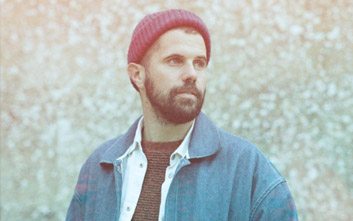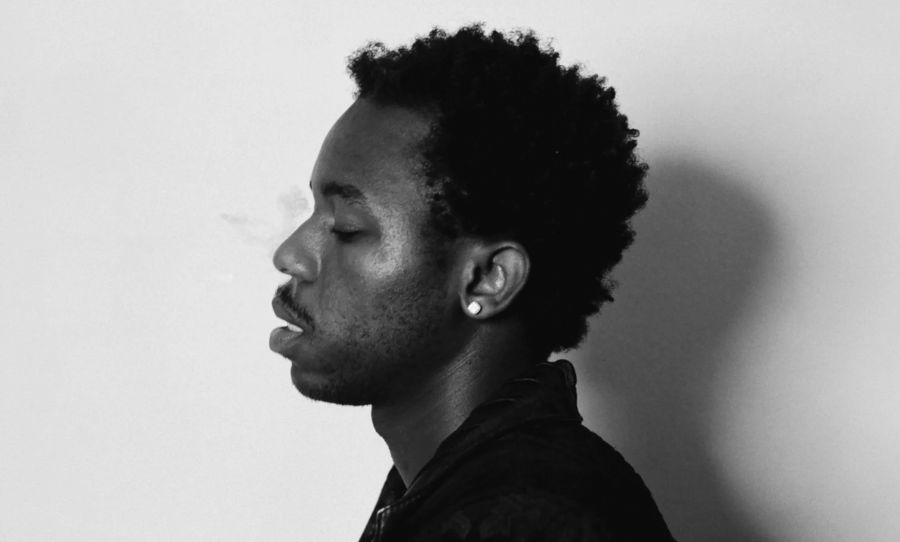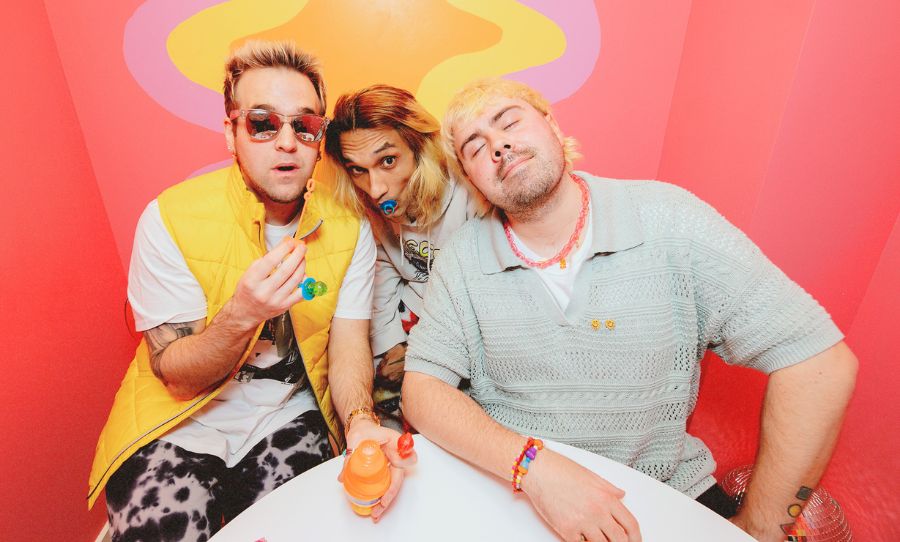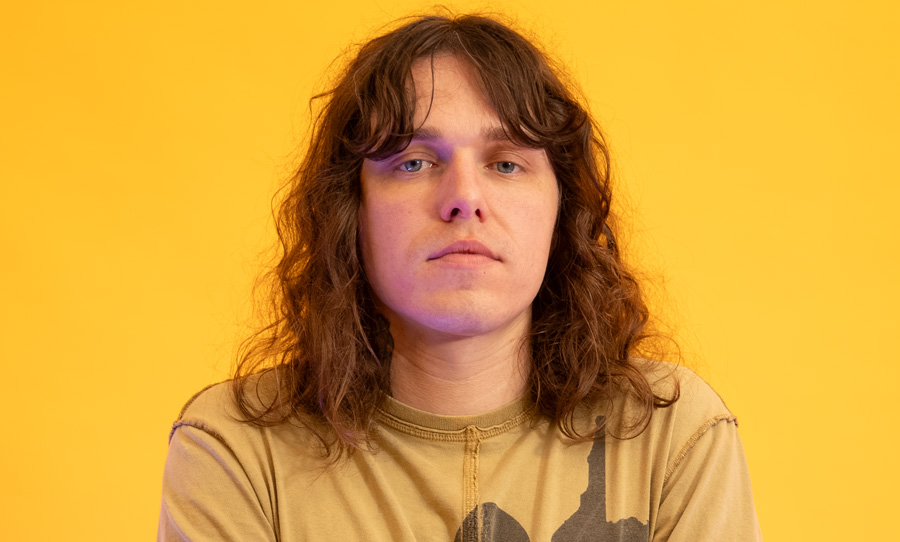If you weren’t from the UK, you’d be forgiven for not knowing the name Nick Mulvey. But believe me, he’s caused quite a stir.
After breaking away from his band Portico Quartet, Mulvey unveiled a string of EPs which developed into his debut album, a Mercury-nominated effort that put him on the map straight away.
Now, three years on from the release of First Mind, Mulvey has released his sophomore long-play Wake Up Now. A challenge, a philosophy, and a call-to-arms, it’s immediately obvious that this release is something far more personal than we could have imagined.
Not 24 hours before Wake Up Now was released to the world, we had a chat.
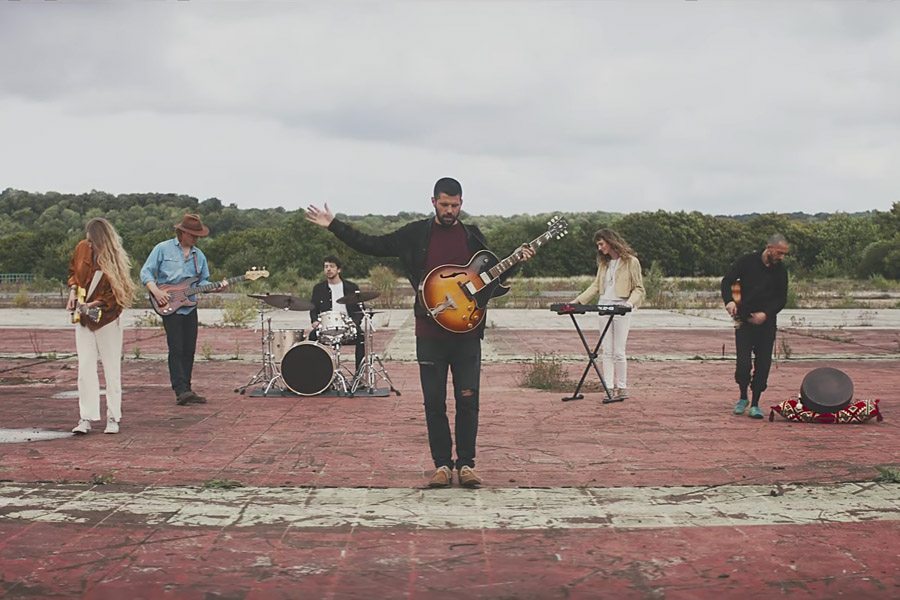
Deeply spiritual, wrought by self-improvement and committed to seeing change, Nick Mulvey has given everything and more on his new LP Wake Up Now.
HAPPY: What’s up? Whereabouts are you at the moment?
NICK: At this moment I’m in West London, and this morning I packed up the apartment we’ve been staying in, and got in the car not 30 seconds ago. We’re sort of on the road right now, with an album and a baby.
HAPPY: Busy time! It’s the morning of the 7th there now, huh?
NICK: Yeah that’s it.
HAPPY: And you’re playing Bestival tomorrow?
NICK: Yep!
HAPPY: Have you played it before?
NICK: We’ve played it once before, it was about two years ago now.
HAPPY: I’ve heard great things… guess it will be mostly an album showcase for you?
NICK: Yeah I think it’s going to be sweet. I mean, it’s a really fun festival, it’s well known for being quite irreverent and silly.
HAPPY: So the album, Wake Up Now, is out tomorrow and I wouldn’t say you’re a frequent releaser. Is there still a sense of nervousness for you, when you put out a record?
NICK: Definitely, you know? Every time you do it, you learn more about it, it evolves in new ways so it’s always the first time, in a way. I’ve really got to a place in myself, as an artist, where I just had to write about the things I felt were important. So it’s new territory for me, to put out music that has subject matter that’s going to be more problematic, or…
HAPPY: Controversial?
NICK: Yeah, a little bit. It’s not too controversial these days, isn’t it? You know, you put on the news every night and it’s a just global horror show. And I believe that there’s much, much, much more going on to the story, and it’s become quite tolerated. It may be controversial to say that there’s not something going on. It’s definitely going to be interesting.
HAPPY: It almost sounds like a protest record.
NICK: Well, it is, but in the same way that Standing Rock was an evolution of protest, this album is as well. It’s about celebrating, and then protecting, that’s the keyword, protecting what’s sacred, you know? Standing Rock, the ways which it moved beyond protest for me was so important, so profound, it really showed us the way that we can move forward. Because you can’t fight for peace you know? You have to pray for peace, to celebrate for peace, to love for peace, you can’t fight for peace. Peaceful people have always been saying that, and I’m proud and happy to be one of them.
HAPPY: You’re on a larger platform than you maybe have been in the past, did that play a part? Some sort of obligation?
NICK: It’s hard for me to always unpick all the different motivations I have, there’s always several going on at the same time.
HAPPY: Fair enough.
NICK: But it was more of a personal issue, to think about these subjects. Really my interest is self-inquiry, you know, what is going on? What is it to be alive? All this stuff that you’d never talk about at school, because we’re just not there yet as a species. That’s my interest, but at certain times the people think that spiritual isn’t political, they don’t understand what spiritual means, there’s a time and place for resistance and so my inquiry into the spiritual angle has taken me to encompass the critical.
That being said, I think on some level I was aware of feeling a duty to be useful, but I also know it’s not the biggest platform in the world, I’m still at the start of my career, you’ll be learning about what I do from this album, rather than already being tuned in. My obligation to the world is a lot more down to earth, it’s about me honouring my incarnation in all its particularities here and now, rather than getting lost in the global setting.
HAPPY: So change is important to you? Self-improvement and change. Is that a big theme to the record?
NICK: You’ve hit the nail on the head, you know? I think one of the subtitles to the album could be “change yourself, change the world”.
HAPPY: I really like that.
NICK: Yeah! We’re all learning, or beginning to learn, where we have true agency… and in what domain can we actually expect change? Every night, tuning into the global news you can feel quite disempowered because what effect do we have over enormous economic decisions, or climate change? Enormous systems. But we’re learning that where we do have agency is within our own lives, over ourselves, and that the old idea of ‘I’m so small, it won’t make a difference’ is really something, I hope, we’re moving beyond. Once you start making changes yourself, you notice, because all we have is this subjective experience, so if you start changing how you’re looking at the world, then the world really does start to change.
HAPPY: Very good.
NICK: I’m laughing at myself here, giving spiritual, wise words over the phone to you.
HAPPY: Gotta love phone interviews. So this outlook, is this something that’s come to you recently, or has it always been important?
NICK: It’s always been important to me. I was the kind of teenager, or young adult, that all of my musical heroes would inspire me in these ways. You know, like Patti Smith, Bob Dylan, John Lennon, Bob Marley, you know, they were all burning for the truth.
HAPPY: You’re very open.
NICK: Well why not, you know?
HAPPY: In less of a thematic sense now I wanted to talk about the album’s production. You recorded at Real World Studios, and it was as a band?
NICK: Yes, in the nicest possible way actually.
HAPPY: Live band recordings are less common than ever, what made you want to go for that angle?
NICK: Well it was interesting. Obviously recording in a live way creates a certain sound, and while that sound was something I wanted, it was a secondary reason. The primary reason was about the message, and the way that message would support me in going further and deeper into my music. What had always been the normal way for me, which was single track recording in isolation, was playing into my tendencies to control the process too much. It’s very easy for me to be controlling with the ability to edit everything afterwards. I can change that word, I can put in a new word, I can organise everything, structurally you can change it all.
HAPPY: You felt it was too much power?
NICK: Too much power, exactly! So I started to realise that this could be limiting my music, that actually it was sucking out the emotion. I made a bunch of demos that were perfect, and that was the problem. So I reflected deeply on that and for a minute, I was stumped, I had my hands up in the air, I didn’t know what to do.
Last summer, I gave up on the album. My orientation, as a result of my reflection, was wrong. Then at that exact moment, my wife was very pregnant with our first baby and I realised that I just needed to not think about the album for a bit, change my priorities and just be of service to her and the baby. In a way it was a break, and the answer came. It benefitted the album for it to not be my focus.
HAPPY: Stepping away can be very useful.
NICK: Yeah, so I had this insight into the ways I had been controlling. It’s an interesting thing, control, I began to realise I wanted to have less control but if you’re not careful, the controlling part of yourself can start trying to control control. In actual fact you need to be clever, the game becomes about creating circumstances that enforce surrender. One of those was recording live, partly because of all that sonic imperfection, you know spillage across the microphone, the cymbal noises on the vocal mic, do you know what I mean?
HAPPY: Yeah, you mentioned Dylan, Patti, Lennon… there is a feeling to it. And people keep coming back to it.
NICK: And that feeling is a lot to do with these things. The other thing is that it forces me to commit to songs, to commit to lyrics especially, and that had a really healthy effect on me, it effectively snapped me out of indecision.
HAPPY: So it helped with your confidence too?
NICK: Definitely. Another thing that became important was that we made the band out of my friends. And that happened very organically, a couple of months before we had started jamming and it’s led to where we are now, playing festivals together. Being close… from the work I had done with Brian Eno I knew I had to make sure to involve my community. Eventually that meant that we were all in the studio together, and on that issue of control it had a positive effect too. Because if I try to tell them what to do, they tell me to fuck off.
HAPPY: Yeah, you needed a friend, someone who could tell the truth?
NICK: Do you know what I mean, yeah? That was healthy, there were moments they had to be firm and just say “let the process happen”, and then I’m out of the way.
HAPPY: It all sounds really awesome, honestly. Good luck with the album man, and the show tomorrow!
NICK: Nice one, mate. Thanks a lot.
Nick Mulvey will be touring the UK, Europe, Canada and the US throughout the rest of the year. Jump onto his official website for tickets.
